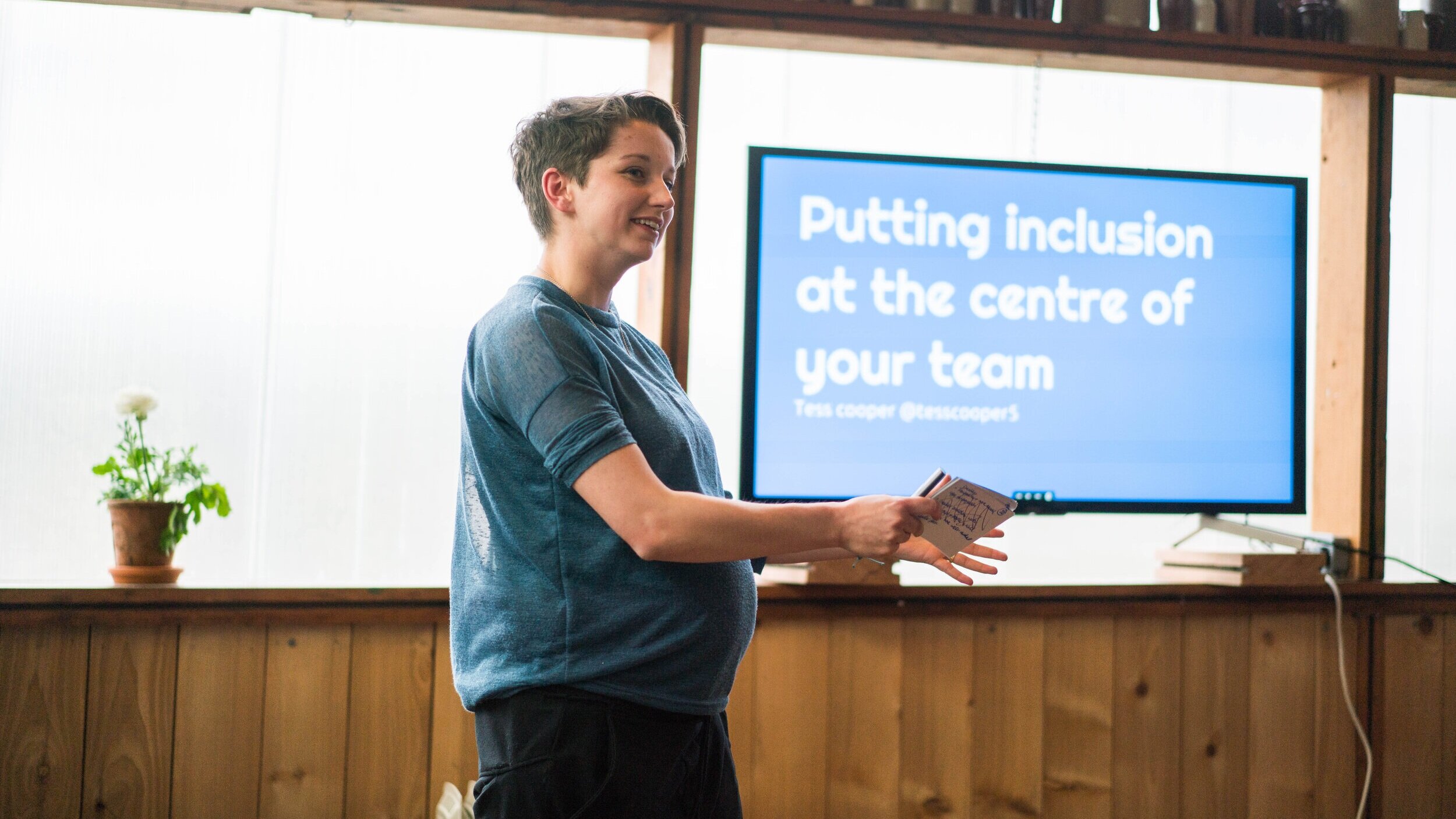Creating equity in work through paid parental leave
our founder, Tess, shares her stories and experiences to demonstrate that paid parental leave is not just about creating equity for parents.
Tessa Cooper delivering a workshop while pregnant
A talented friend of mine was made redundant a few years ago and during one of her interviews for a new role was asked about her plans to have children. She had no children at the time, but was in a long-term relationship and was considering it - needless to say she didn’t share any of this with the employer, but she also didn’t explicitly say “No, definitely not”. She didn’t get the job. She could sue this employer for asking this question, whether it influenced their decision or not - but when your main concern is trying to find a way to earn a living people often don’t have time to fight inequities in the workplace.
While I don’t remember ever being questioned about my plans to become a mother by a workplace (probably because I had my first child at 24), I had also personally never questioned my own ability to have a career and kids. I had no idea that my workplace only offered 8 weeks full-pay which then dropped to a statutory £592 a month after that. As the highest earner in our family I needed to return to work after 3 months leave in order to pay our rent. I was lucky that my partner had always wanted to be heavily involved in raising our children so we didn’t have to fork out for extortionate childcare costs.
I was not emotionally or physically ready when I returned to work (I still had to express milk 3 times a day!). Not only did it cost my health in many ways, but I also believe the company would’ve gotten more value from me if they’d paid me to be on leave for a little longer.
Instead I returned exhausted and angry at the world.
In many ways this spurred me on to create change within the workplace, and I managed to increase the company’s maternity pay to 12 weeks full pay based off my own experiences and eventually became their Director of People and Culture.
It was also through me vocalising my needs as a breastfeeding mother in the workplace that others with different needs began to see that our workplace should work for them too. An autistic person was finally able to speak up about needing a quiet space to rest during the working day. People with other responsibilities outside of work realised they should be able to access a more balanced work life too so we introduced sabbaticals and flexible working for everyone. All that said it still wasn’t enough and I personally ended up leaving before I had my second child as I needed even more flexibility and control over my work.
The reason I share these stories is to demonstrate that paid parental leave is not just about creating equity for parents.
The support, or lack of support, that we offer to parents in the workplace, as well as our deeply ingrained stereotypes about motherhood, affect all of us - whether we have children or not.
The fact that most men are unable to access decent paid leave to look after children not only more deeply ingrains the gender pay gap but it also means the next generation continue to grow up with predominantly female influences in their early lives. If we don’t really value people taking time off to look after the wellbeing of dependants, how will we value people taking time off to look after themselves?
This is why I was incredibly excited to be able to support Developer Society, a not-for-profit co-operative, to explore how to implement a 3-month fully paid parental leave policy for all of their staff regardless of gender.
As a co-operative their staff have the power to decide how to run their company, and whilst paid parental leave aligns with many of their values, it was an incredibly difficult decision to make as paid leave is costly both in terms of salaries and short-term productivity. Given their tight profit margins the team have settled on initially implementing a 3-month package in the short-term but they are actively looking at how they can build up a reserve to be able to extend that - as well offer it to people who need extended leave for other purposes too. Not only will this change improve the wellbeing and retention of existing staff, it will also attract new talent to the business being one of the few small businesses who have been so bold in their commitment to equality.
Find out more about working at Developer Society and get in touch with us if you’d like our support with creating a workplace in which everyone is empowered to thrive.

